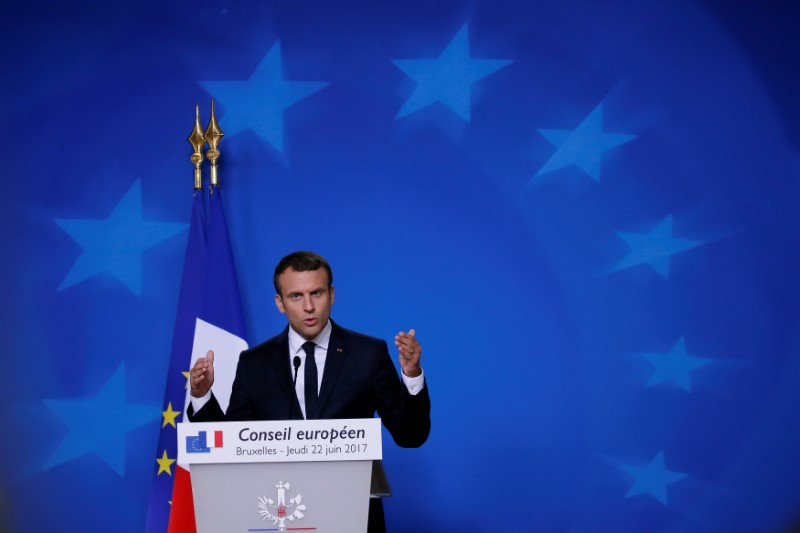By Gabriela Baczynska
BRUSSELS (Reuters) - Hungary and Poland hit back on Thursday at French President Emmanuel Macron after he warned eastern states that the European Union was no "supermarket" where they could pick and choose the parts of EU membership that they liked without regard for the bloc's values.
Macron made the remarks in an interview with European newspapers ahead of his first EU summit since becoming president last month, saying countries that don't respect EU rules should face the consequences.
His comments come amid an escalating row between the European Commission and the right-wing governments in Warsaw and Budapest, which have introduced curbs on judges and the media that the EU executive says undermines the rule of law and democratic norms.
"The French president is very young. He is coming here for the first time," Hungarian Prime Minister Viktor Orban told reporters at the summit.
"His start has not been very promising. He thought yesterday that he could kick the central European countries. This is not how it works here."
Polish Prime Minister Beata Szydlo accused Macron of showing off his antipathy towards central European states in the media.
"It's good to talk about facts, not use stereotypes," she said.
But Macron, who is due to meet with Orban, Szydlo and the leaders of Slovakia and the Czech Republic on Friday morning, received strong backing from German Chancellor Angela Merkel, who usually steers clear of openly criticising eastern states.
"I believe it was important that Emmanuel Macron said this again. Germany and France are completely on the same page," said Merkel, when asked about Macron's remarks.
The European Commission has opened several legal cases against Warsaw and Budapest. Some EU states want to reduce EU funds for the eastern countries as punishment for their government's actions.
Macron and the eastern states are at odds on a number of major issues currently under discussion in the EU.

The French president has criticised them for not accepting refugees and is a vocal opponent of so-called "social dumping", in which companies employ cheaper labour, often from eastern countries, or move production to lower-wage countries.